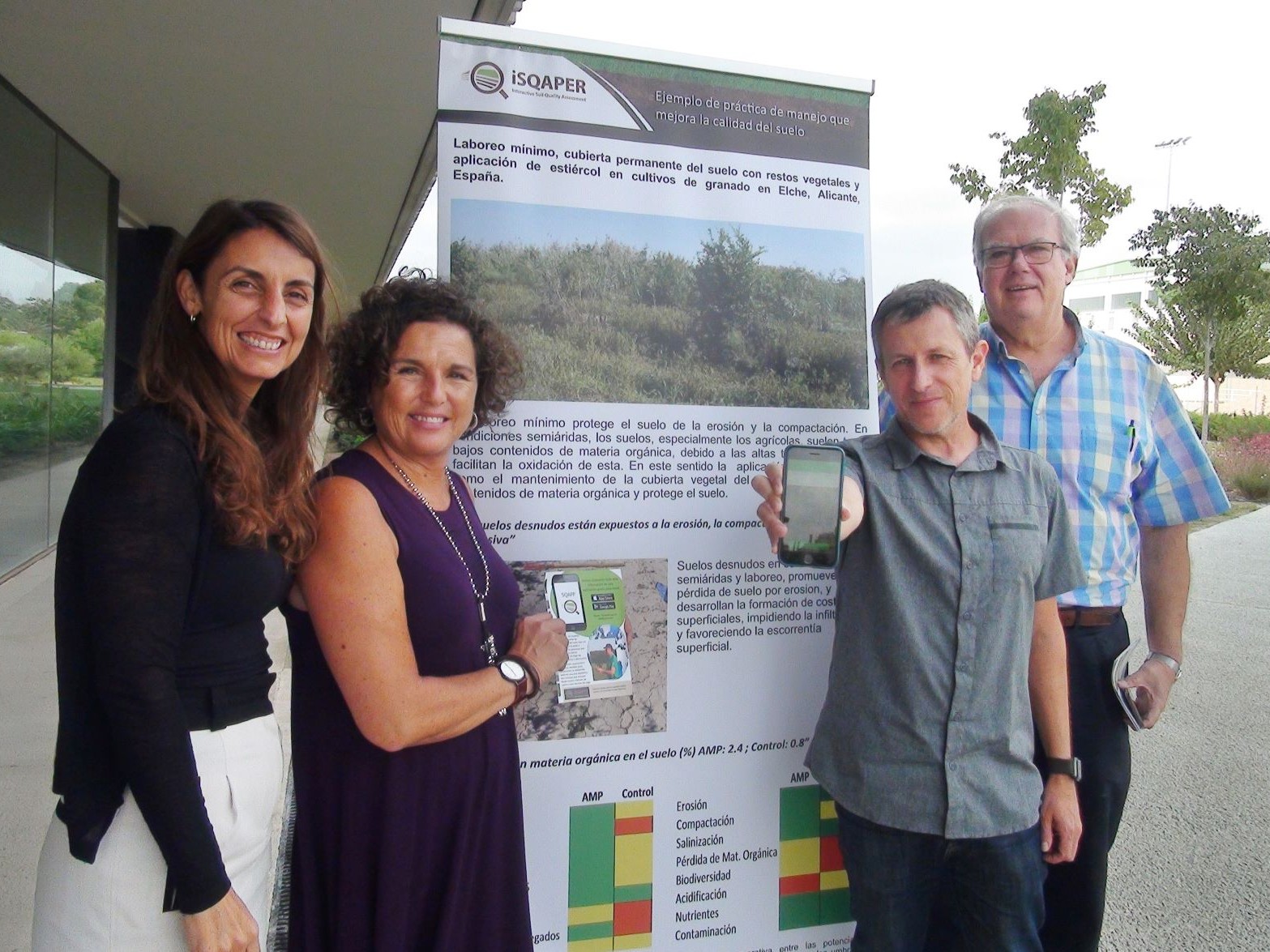New app to assess agricultural soil and improve its quality
The Environmental Soil Science group (GEA-UMH) of the Miguel Hernández University in Elche (Spain) has created an application to assess and improve the quality of agricultural soil. This tool is the result of a global project that analyses the quality of soil destined to agricultural production, as well as sustainable agricultural methods in Europe and China. The app, presented this week by UMH researchers, provides real information on the type of suitable agricultural methods depending on the soil, crops and conditions. This mobile application, which can be used in situ at the examined lands, combines biological, physical and chemical information from data gathered in the agricultural areas to be studied, located in Europe and China. It is one of the objectives of the Interactive Soil Quality assessment in Europe and China for Agricultural productivity and Environmental Resilience (iSQAPER) project, in which UMH researchers Fuensanta García Orenes, Ignacio Gómez, Jorge Mataix and Victoria Arzenegui have taken part. The effects of agricultural handling on soil quality were analysed in prior phases of the project, and an inventory of good agricultural practices was created to preserve and improve the quality of the soils. A total 14 experimental areas were chosen in Europe, which were representative of all the climates that affect the continent, one of which was south-east Spain. A total 12 sub-areas were established in the south-eastern Spanish area, two of which are located in Elche, and another two in Orihuela. Thus, different agricultural areas destined to crops such as artichokes, pomegranates, grapes or tomatoes, and where different types of organic compost and sustainable practices such as tillage reduction are implemented, were studied. The study’s conclusions indicate that the bare soils, where no vegetation other than crops are allowed to grow, are more exposed to erosion by air and water, to compaction and gradual deterioration. The GEA-UMH laboratory is the only Spanish group with experimental areas which took part in the iSQAPER project, a global project in which 25 research groups from 15 countries take part. It is a project funded by the European Union’s Horizon 2020 programme. For more information, visit the project website: http://www.isqaper-is.eu(opens in new window) or watch the video at https://youtu.be/rPxNj8FCIZM(opens in new window)



